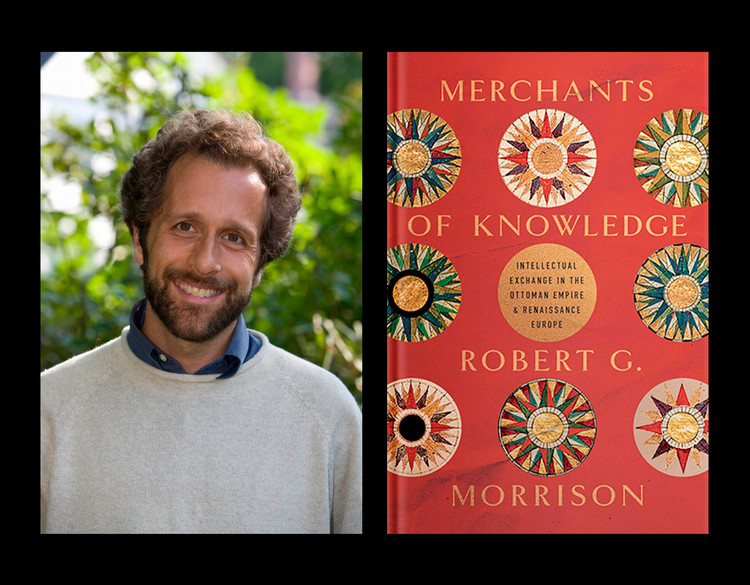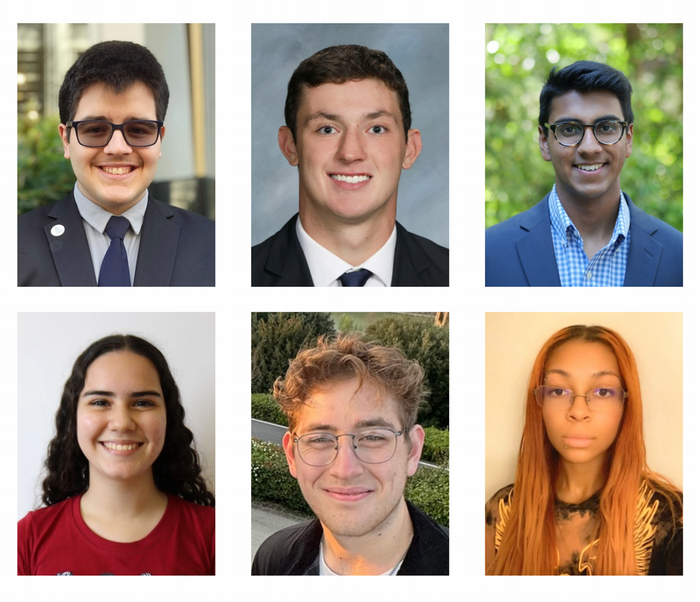Baccalaureate Keynote Speaker Darren Walker, H’16, Ford Foundation President
By BowdoinDarren Walker
Address to the Bowdoin College Class of 2016
College Baccalaureate Ceremony
Friday May 28, 2016
Thank you, President Rose and the trustees of this great college. Honored guests; members of the faculty and staff; family and friends of the graduates; and, most importantly, to the Bowdoin class of 2016: Congratulations!
I am so honored to join you—on this very special occasion. And I must say, the Thorne Hall cuisine exceeded my wildest expectations.
Sometimes, when we live in a place for a while—as you have here—we can take our surroundings for granted. But as I walked this campus today, as someone relatively new to Bowdoin, I found myself struck not just by its beauty, but also by its powerful sense of history. And so, on an occasion designed to cheer you on into your future, I find myself reflecting on the past.
As you no doubt know, come tomorrow morning, you will join the great American poet Henry Wadsworth Longfellow as a Bowdoin alumnus. What you may not know is that on the 50th anniversary of his own graduation—in 1875— Longfellow returned to this campus to read a poem he had composed for the special occasion. To quote a line from that poem:
What passing generations fill these halls, / What passing voices echo from these walls…
And if these walls could talk, they might tell you about the scratches of Harriet Beecher Stowe’s pen. Or the determined footsteps of Olympian marathoner Joan Benoit Samuelson as you’re out on a run. These walls might tell you about Ken Chennault cramming for an econ test—or Geoffrey Canada writing a sociology paper.
Of course, the history of this place is not the only thing that we can take for granted. We can also take for granted the privilege of being here.
Think for a moment about how you got here—how you reached this milestone in your life, on the verge of graduating from one of the best colleges in the country.
Each of us has our unique stories. No two paths are the same. Though I’m sure if we took a poll, we would find many commonalities among us.
You all excelled as students, and athletes, and artists, and musicians. You all studied hard, and worked hard, and played hard.
And yet, there is a temptation to believe that your hard work is the only thing that got you here, which isn’t exactly the case.
Tonight, all around you, there are family and friends: People who worked hard to provide for you, and support you, and open doors for you. We applaud them. This weekend belongs as much to them as it does to you.
But the further and further away you get from moments like these, the easier and easier it becomes to forget how other people set us on course for success. Because in America, there’s a story we like to tell ourselves about success—that it’s an individual achievement, alone.
We celebrate the self-made man and woman, pulling himself or herself up by the bootstraps. But when I think about my own story—as I’d like you to think about your own story—I find this larger cultural narrative really doesn’t hold up. Because I have learned that we rarely get anywhere on our own.
I was very fortunate that my mother moved me out of the poor town in Louisiana where I was born. I was equally fortunate that, in the spring of 1965, a young woman with a clipboard came up to our little shotgun house in Ames, Texas, and asked my mother to sign me up for the inaugural class of Head Start. I was fortunate to attend good public schools, to learn from teachers who urged me on, to secure Pell Grants and private scholarships from generous philanthropists to pay for my education. So I always felt like my community, my country, were cheering me on. I never once thought I did it all by myself.
My point is that we are all very fortunate. None of us is here by our own initiative in isolation. Our individual achievement—determination, hard work, grit—was essential to getting here, but it was not sufficient—and I point this out for two reasons:
First, just because you earned this extraordinary degree doesn’t mean you will suddenly, magically be able to succeed on your own.
And second, because if you are here in this room tonight, you are the beneficiary of enormous privilege. We all are.
I know, privilege can be a very difficult thing to talk about in our culture. There are those who think that naming it means disparaging or discounting the hard work of individuals, or the sacrifices of families. That is certainly not my intention.
There are those who think acknowledging privilege takes something away from your accomplishments, and it does not.
Meanwhile, there are those who think just naming privilege is enough, but, believe me, it is not.
I’m sure many of you saw activist and Bowdoin alum DeRay Mckesson, Class of ’07, explaining privilege to Stephen Colbert. But he also spoke to that reputable periodical The Bowdoin Orient, saying, and I quote: “The common good is this understanding that you are to use your privilege and your gifts for causes greater than you are.”
Think about that for a moment: “Use your privilege for causes greater than you are.”
What DeRay reminds us is that privilege is not something to feel guilty about or burdened by. It’s something for us to embrace and extend. In many ways, privilege can be liberating.
All of these great privileges you have—these gifts of which you’ve made the most—use them, earn them, expand them. And acknowledging this privilege—being grateful for this privilege—is the first step in harnessing and directing that privilege to make a better world.
Last month, the journalist Robert Frank wrote a wonderful article in the Atlantic, titled, “Why Luck Matters More than You Think.” In it, he highlights research that shows how acknowledging our own good fortune can help us improve the lives of others.
In one study, researchers found that people who feel grateful are more likely to be generous to strangers. In another study, people who credited good things in their lives to outside help—including supportive families and financial aid—were more charitable than people who chalked up their good fortune to themselves alone.
In other words, understanding how we got where we are helps us become more generous and charitable—and more thoughtful, moral and fair. And becoming all of these things allows us to extend our privilege, to actively make our world more just for those around us.
Simply put, being aware of and grateful for the way we got ahead can help us pull others along with us.
But it doesn’t happen on its own.
I hope you will actively participate in “bending the arc of the moral universe toward justice,” as Dr. King said. And given the state of inequality in the world, we need every one of you to assist in the bending. To do so, you will need to immerse yourselves in the lives of others, and find a way to serve. Understanding and empathy will be your greatest tools to lift up those around you.
Graduates: A closing story about extending one’s privilege.
I’m slightly obsessed with Lin-Manuel Miranda’s brilliant hit musical Hamilton. I’ve seen it six times, including on opening night. Talk about privilege.
My friends are tired of hearing me talk about it. And don’t worry, I’m not going to sing.
I just want to share the feeling of inspiration I have derived from Hamilton’s story. Like many of you, Miranda’s Hamilton was “a self-starter,” and worked “a lot harder.” But he also was afforded an opportunity by someone with far more privilege than he: George Washington.
As Miranda writes it, this “model of a modern major general,” this “venerated Virginian,” sees himself in the young Hamilton. And he lifts him up, making Hamilton his aide in the Continental Army. And then he gives him his first command. And later he appoints Hamilton as the first Secretary of the Treasury.
My point is: In a story about Alexander Hamilton rising up, and refusing to “throw away his shot,” it was the most privileged member of the Virginia aristocracy who put Hamilton in position to climb.
Yes, Hamilton fought, and worked, and ultimately died defending his notion of our nation. But as he stretched for that first foothold, someone offered him a hand. And that made all the difference in the world.
Class of 2016: You, too, have been extended a hand up, by all of the people who helped you reach this moment. And with this privilege, comes your opportunity. Your chance. Your shot.
Do not throw it away.
I implore you: Do not throw away your shot to make a difference; your shot to fight for justice; and, most of all, your shot to give others a shot, in turn.
It has been my privilege to speak with you all today, and I cannot wait to see what you do with yours.
# # #



